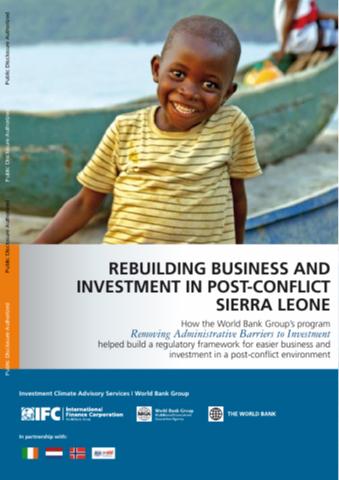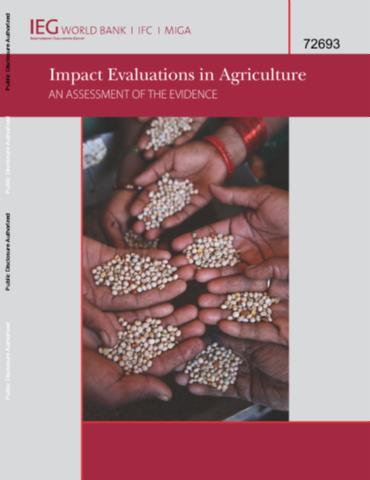The World Bank is a vital source of financial and technical assistance to developing countries around the world. We are not a bank in the ordinary sense but a unique partnership to reduce poverty and support development. The World Bank Group has two ambitious goals: End extreme poverty within a generation and boost shared prosperity.
- To end extreme poverty, the Bank's goal is to decrease the percentage of people living on less than $1.25 a day to no more than 3% by 2030.
- To promote shared prosperity, the goal is to promote income growth of the bottom 40% of the population in each country.
The World Bank Group comprises five institutions managed by their member countries.
The World Bank Group and Land: Working to protect the rights of existing land users and to help secure benefits for smallholder farmers
The World Bank (IBRD and IDA) interacts primarily with governments to increase agricultural productivity, strengthen land tenure policies and improve land governance. More than 90% of the World Bank’s agriculture portfolio focuses on the productivity and access to markets by small holder farmers. Ten percent of our projects focus on the governance of land tenure.
Similarly, investments by the International Finance Corporation (IFC), the World Bank Group’s private sector arm, including those in larger scale enterprises, overwhelmingly support smallholder farmers through improved access to finance, inputs and markets, and as direct suppliers. IFC invests in environmentally and socially sustainable private enterprises in all parts of the value chain (inputs such as irrigation and fertilizers, primary production, processing, transport and storage, traders, and risk management facilities including weather/crop insurance, warehouse financing, etc
For more information, visit the World Bank Group and land and food security (https://www.worldbank.org/en/topic/agriculture/brief/land-and-food-security1
Resources
Displaying 4526 - 4530 of 4907Compulsory land acquisition and voluntary land conversion in Vietnam
The report provides recommendations on improving land policies to ensure the efficiency of their practical implementation and to target them at both economic development and social sustainability.
Property Rights in a Very Poor Country: Tenure Insecurity and Investment in Ethiopia
This article provides evidence from one of the poorest countries in the world that the institutions of property rights matter for efficiency, investment, and growth. With all land state-owned, the threat of land redistribution never appears far off the agenda. Land rental and leasing have been made legal, but transfer rights remain restricted and the perception of continuing tenure insecurity remains quite strong. Using a unique panel data set, this study investigates whether transfer rights and implied tenure insecurity affect household investment decisions, focusing on trees and shrubs.
Rebuilding Business and Investment in Post-Conflict Sierra Leone
Sierra Leone’s devastating 11-year civil war destroyed much of its infrastructure, and left its economy in tatters. In 2004, two years after the end of the war, Sierra Leone asked the investment climate (IC) advisory services of the World Bank Group to help create a better business and investment climate that will lay a foundation for the country’s future economic growth.
Rebuilding Business and Investment in Post-Conflict Sierra Leone
Sierra Leone’s devastating 11-year civil war destroyed much of its infrastructure, and left its economy in tatters. In 2004, two years after the end of the war, Sierra Leone asked the investment climate (IC) advisory services of the World Bank Group to help create a better business and investment climate that will lay a foundation for the country’s future economic growth.
Impact Evaluations in Agriculture
This report seizes the opportunity to learn from existing evidence by analyzing lessons derived from impact evaluations produced between 2000 and January 2009 to begin to discern what has been effective in agriculture. It is part of a broader effort being undertaken by the Independent Evaluation Group (IEG) of the World Bank to understand how impact evaluations can help improve performance and broadly disseminate those lessons.









